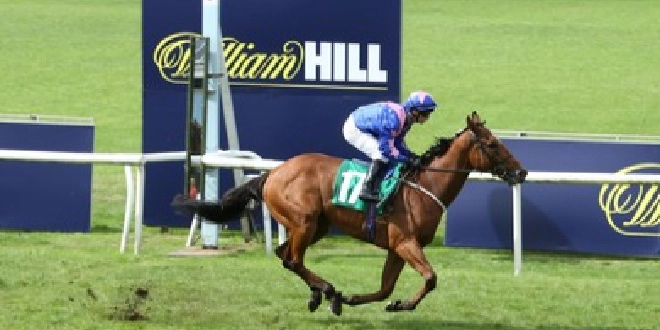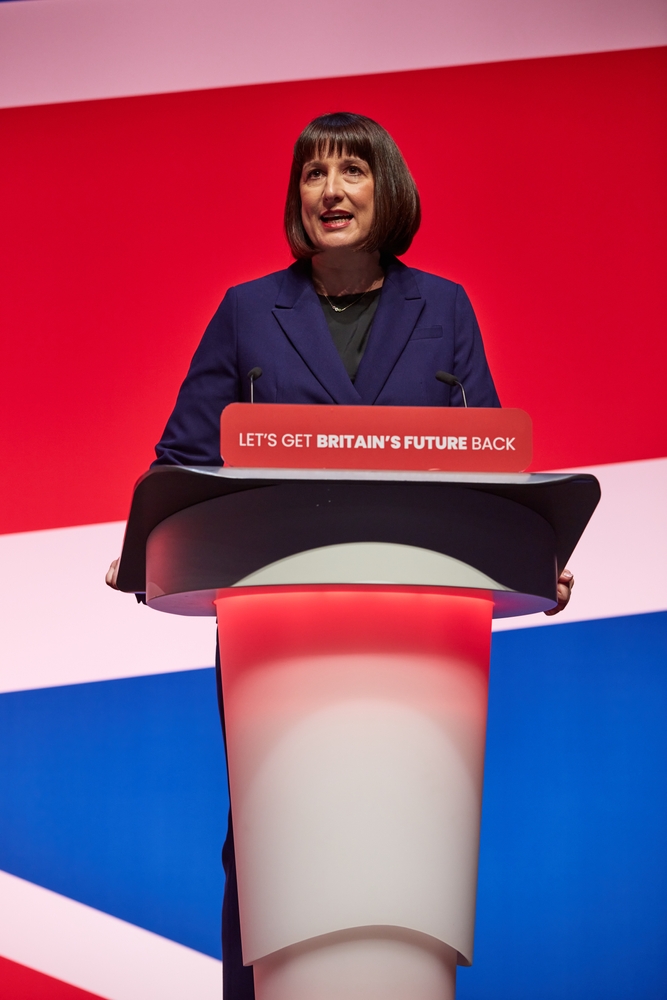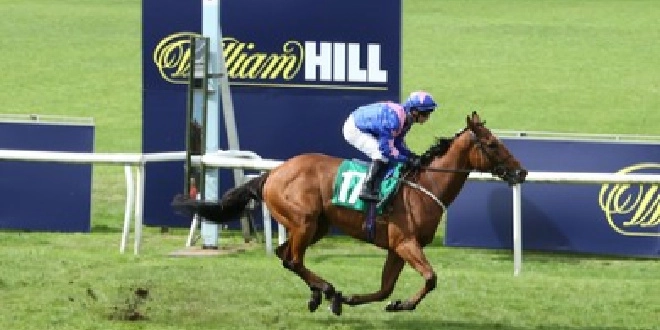Groundhog day has repeated for gambling and racing as reports re-emerge that the HM Treasury and Rachel Reeves, Chancellor of the Exchequer, must consider significant tax raises on the UK gambling sector.
The Labour Treasury’s consultation on betting taxation concluded on Monday 21 July, having been triggered in April. Though no recommendations have been published by the Treasury, rumours mount that advisors have listened to the advice of reformist think tanks calling for a ‘polluter principal tax’ to be imposed on gambling.
James Murray, Exchequer Secretary to the Treasury, wrote at the start of the consultation that the UK betting tax framework needs to evolve in line with the industry. The final decision lies with Reeves who is facing pressure to revitalise the British economy.
“The time has come to consider moving to a single tax for UK-facing remote gambling,” Murray wrote in the forward to the consultation report.
“A single duty will provide tax certainty and increase simplification for remote gambling.”
This single duty Murray referred to is a combination of the three types of gaming tax in one.
These three types are – Remote Gaming Duty of 21%, General Betting Duty of 15% on fixed odds betting, 10% on spread bets and 3% on financial spread bets; and Pool Betting Duty of 15%, which is applied to sports pools but not horse and greyhound racing.
As expected, the prospect of a unified gaming tax has led to a lot of opinions being aired – some massively in favour, others massively against.
Gaming’s two cents on betting tax
The consultation began in April and concluded last Monday, but so far no written submissions to it have been made public. It’s not too hard to predict who may have said what, however.
Firstly, gaming – the gaming industry has, unsurprisingly, been very critical of single gaming duty. The main argument heard from the industry is that increases in betting tax could impact player returns, and may lead to customers turning to black market firms.
This echoes an industry argument heard during various other debates, particularly the one around ‘affordability checks’ heard during the two-and-a-half year duration of the Gambling Act review from December 2020-April 2023.
Speaking to the Financial Times, Grainhe Hurst, CEO of the Betting and Gaming Council (BGC), remarked that a tax increase would “simply jeopardise (the industry’s) contributions on the economy, on sport, on growth and jobs”.
Perhaps of greatest concern to operators right now though will be the impact to bottom lines and shareholder value, with Q2/H1 trading reports due over the coming weeks from some of the biggest players in the industry – Entain, Flutter, etc.
A unification of gaming taxes would not take place until October at the earliest due to being announced in the next government budget, the Autumn Budget, which is usually announced in either October or November.
However, the pressure of facing inverters and analysts over earnings calls over the next few weeks will likely hammer the issue of betting tax home. The impact this can have on bottom lines has already been noted by some operators like Betsson, which has experienced tax exposures in various other markets.
“Every time there’s a change in tax it has an impact on the margins or the business as such,” Betsson AB CEO Pontus Lindwall told SBC’s iGaming Daily following the publication of the group’s H1 financials the other week.
UK Racing views £330m impact
The BGC’s Hurst has clearly been banging the drum about the contributions betting makes to sport, and how these can be impacted by any rises to tax. These contributions are of significance to one sport in particular – racing.
Similar to the bookies and casinos, the argument horse racing will have made in its submission to the consultation will not be too hard to predict. The sport has already worn its heart on its sleeve on the topic of a single gaming tax, claiming it could deal a blow of £330m in lost revenue over five years and threaten 2,752 jobs.
“The Government’s consultation on harmonising online betting duties, if followed through, poses one of the gravest risks to racing the sport has ever seen,” said Brant Dunshea, Acting Chief Executive of the British Horseracing Authority (BHA), upon launching its ‘Axe the Racing Tax’ campaign earlier this month.
“This will punch a huge hole in racing’s finances, risk thousands of jobs across Britain and threaten the future of the country’s second most-popular sport and a cherished national institution.”

Building on this campaign, the BHA announced a petition yesterday (29 July), calling on any interested stakeholders to sign and support. The petition carries the same name as its campaign, Axe the Racing Tax.
Dunshea remarked: “This latest tax bombshell from the Government, if followed through, poses one of the gravest risks to horseracing the sport has ever seen.
“The horseracing industry is already in a precarious financial position, and the latest research provides a much more catastrophic forecast than we first thought.
“We’re talking about thousands of jobs at risk across the supply chain, severely impacted towns and communities, and the irreversible decline of the country’s second most popular sport.
“Together as an entire industry, we’re asking the British public for support in calling on the Government to rethink this policy and stop undermining a much-loved part of British heritage and culture. It’s time to axe the racing tax and back British horseracing.”
The BHA’s campaign has won the support of other key horse racing stakeholders as well as some political ones – Kemi Badenoch, leader of the Conservative Party, has made some comments favourable to the industry, perhaps looking to court rural support at a time when the centre-right party is facing record low public support.
“I’ve never seen a year where the opposition’s been sidelined,” said Ted Menmuir, SBC Media Editor-at-Large, on iGaming Daily. “I think what a lot of Conservative strategists are saying is ‘how do we get this party back in the limelight?’ – not just against Labour but against the up and coming parties such as Reform, the Green Party, the Lib Dems. Everyone’s kind of stealing the limelight off the opposition.”
Some gaming stakeholders have also lent support to BHA”s campaign, like Flutter Entertainment, and these viewpoints may come across in any contributions companies like this have made to the consultation.
Reformists awaken for budget statement
The final key stakeholders to consider in this consultation, and perhaps the most important ones, are those campaigning for gambling regulation reform in the UK, and the government itself.
In the case of the former, various MPs like the All Party Parliamentary Group on Gambling Reform (APPG GR), campaigns like Gambling With Lives (GWL), and think tanks like the Social Market Foundation (SMF), would all like to see gaming taxed differently.
Many campaigners felt that the Gambling Act review White Paper of April 2023 did not go far enough on many issues, particularly sponsorship and marketing. They would also like to see the industry make more of a tax contribution with the view that this tax revenue could go towards gambling harm treatment and prevention programmes.
The fact that the NHS has taken over the role of commissioner of problem gambling treatment and fundraising from long-time commissioner GambleAware, which will shut down next March, will add further rationale to this viewpoint.
The SMF in particular has been vocal in calling for gambling to be taxed more heavily. In a report published yesterday, the organisation calls for an increase in remote gaming duty to 50% and a for general betting duty across all products to be set at 25%, with small businesses exempted.
It seems that the SMF’s ideal vision is for the big players of UK gaming (Flutter, Entain, bet365, evoke, Betfred etc) to shoulder the burden of heavy taxation. It has made some product distinctions, however.
The report recommends an increase in the Horserace Betting Levy to 20% and a reduction of betting duty on racing to 5%. The SMF is of the opinion that more high risk products like slots should make a greater tax contribution than racing.
In a foreword to the report, APPG RG member Alex Ballinger MP, a member of governing Labour Party, said: “The evidence is clear: some gambling products – like online slots – cause far more harm than others.
“These harms carry huge costs, from personal debt and family breakdown to rising pressure on public services. Our tax system should reflect this.
“It is not right that more harmful, low-employment sectors pay less tax than less harmful
ones that bring greater social and economic value, like horse racing.”

The SMF has been one of the most vocal reformist groups in recent years. The think tank has played a leading role in gambling reform advocacy campaigning and research, funded by a mix of groups and individuals including multimillionaire Labour Party donor and former pro-poker player Derek Webb.
Theo Bertram, SMF Director, is quoted by the FT as calling for Reeves to what he calls a “chorus of support for higher taxes on the most harmful forms of gambling” from the Labour backbenchers. With Labour MPs making up the majority of APPG GR, the government may be feeling pressure from within.
Lastly, on this topic, the Labour government is facing pressure in more ways than one. Economic growth has been stagnating and PM Keir Starmer and Reeves have embarked on extensive investment programmes – this money has to come from somewhere, and betting tax may be a drop in the ocean in the grand scheme of things, but can still fill a gap.
_____
September 15 will see SBC organise a ground breaking charity football event in Lisbon. Make sure you get the chance to see some of the most legendary names in football by securing your ticket today at https://www.legendscharitygame.com/
More Information & Source
Original Source:
Visit Original Website
Read Full News:
Click Here to Read More
Have questions or feedback?
Contact Us


